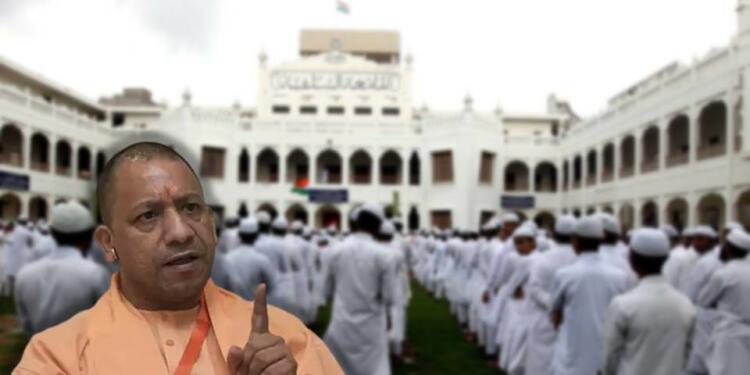Madrasas Scholarship: The basic hypothesis to ‘Secularism’ advocates the separation of the state from religious institutions. However, the pseudo-secularist regimes have cherry picked the ideals of secularism to benefit of their prospective vote banks. Thereby, giving birth to strict criticism from the humble tax-payer whose money is used for propagation of religious goals and ideologies.
The current regime in India has been quite vigilant to the growing outcry of taxpayers. The “allocation of tax revenues” should ideally adhere to the “principles of equality” and not be for the benefit of one at the expense of others.
Central Government stops scholarship at Madrasas
In agreement with the essence of equality, the central government has decided to take down the scholarship grants to Madrasa students across the country from Classes 1 to 8. The students registered from Classes 1 to 5 were provided with a scholarship of Rs 1,000, while students from Classes 6 to 8 received the grant depending on their courses, in various Madrasas across the nation.
Furthermore, they were taking advantage of various government schemes under the “Right to Education” policy of both the states and the central government. The said policy was detrimental to the interests of students who were enrolled in government schools, as they were not eligible for any such scholarship.
The government record shows that in 2021, nearly 5 lakhs children from around 16,558 madrasas received government-sanctioned scholarships. Consequently, the Minority of Affairs, headed by Union Minister Smriti Irani, has decided the scholarship of madrasas students. The education of students from Classes 1 to 8 is free under the Right to Education Act.
Furthermore, other essential facilities, including midday meals and free books, are taken care of by the government. Therefore, the additional scholarships are blocked by the Narendra Modi government.
Also read: Himanta begins the demolitions of illegal madrasas and mosques
Madarsa Policy of Yogi
The action of the central government is in consonance with the policy adopted by the Uttar Pradesh administration. The UP Board of Madarsa Education was established in 2017 to check irregularities in the madrasas functioning in the state. More recently, the CM Yogi-led UP government has conducted a survey of the madrasas in the state.
The administration found nearly 8,500 unrecognized madrasas to be operational in the state. The survey was aimed at documenting the details of teachers, students, curriculum, and the affiliation of the madrasas with non-government entities.
According to Danish Azad Ansari, Minister of State for Minority Affairs, the survey was carried out in accordance with the requirements of the National Commission for Protection of Child Rights (NCPCR) and would help the government check on the basic facilities at these institutions.
Further, at the conclusion of the two month survey, Dr Iftikhar Ahmed Javed, Chairman of Uttar Pradesh Board of Madrasa Education said, “ A survey of unrecognized madrasas in all 75 districts was completed today. The administration of various districts has sent copies of the report to us and also to the government. The maximum numbers of unrecognized madrasas 550 have been found in Moradabad district, followed by Siddharth Nagar, 525 and Bahraich, 500.”
Earlier this year, the Uttar Pradesh government made it mandatory for all students and teachers in madrasas of the state to sing the National Anthem before the commencement of classes. In addition the UP administration has decided to stop funding the new madrasas.
Also read: Madrasas, Mazaars and Migrants – CM Dhami is out to weed out the 3Ms destroying Devbhoomi
Future of Madrasa in Uttar Pradesh
The steps taken by the union as well as the state highlights that the government is moving with a progressive policy on the madrasa in Uttar Pradesh. The previous budget had set aside a colossal amount for the modernization of madrasas in the state.
However, CM Yogi has taken a tough stance to curtail the growing radicalization of students in these institutions. After making it mandatory to respect the national symbols in the madrasas, the administration carried out a survey to ascertain the facilities available at these places. It will help the government promote quality education, but not at the cost of appeasement.
Also read: Yogi begins choking madrasas
The state government Under CM Yogi, has taken a firm stance against the institutional interference by non-government bodies in the working of the madrasas. The decision can be seen as a step towards developing equality in primary education by modernizing the existing madrasas.
Further, by preventing the approval of new madrasas, the state government aims to introduce more students to the modern education system. In addition, the ban on scholarships for madrasa students below class 8 is in tune with the equality clause of the Constitution.
Support TFI:
Support us to strengthen the ‘Right’ ideology of cultural nationalism by purchasing the best quality garments from TFI-STORE.COM
























